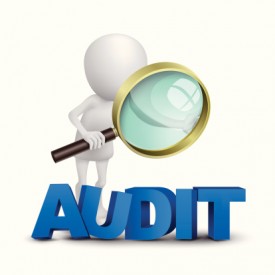Best Practices for Avoiding a CMS Compliance Audit
CMS compliance audits are a part of medical billing, but with the right steps, practices and hospitals don’t need to worry.
- A popular topic on this website is the results of Medicare and Medicaid service audits. In the healthcare landscape, the possibility of having your practice or hospital audited for its billing practices is a scary thought for those making decisions. This is especially true with how quickly regulations are changing. It is easy for a practice to overlook a coding change to IDC-10 or suddenly fall behind the latest systems requirements because internal technology and infrastructure become outdated following an update.

Failure to stay on top of the changing landscape can lead to major financial problems down the road and the need to pay back unallowable funds. RevCycleIntelligence.com routinely covers audits that are the results of missing a coding change or improper practice policies that, if left unadjusted for a long stretch, can lead to a substantial sum that suddenly needs to be repaid.
While a majority of healthcare organizations audited are targeted because of past issues or because of a history of noncompliance with a particular process, some organizations are audited at random. Hope that you will not get audit is not a strategy. Practices need to be proactive in how they operation and make sure that, in the case of an audit, the organization is not caught off guard.
Because of this, any practice or hospital needs to stay ahead of a potential audit to ensure that, if an audit is to happen, the results are favorable. This requires following some best practices.
Assume the worst - If your practice is prepared for the worst at all times, no audit will trip it up. A hospital that operates under the assumption that they will be audited knows what to look for, what documents to retain, how the system should be operating and what knowledge employees need to know in order to remain compliant.
These practices will also know the auditing process so well that running a pre-audit or practice audit will be commonplace. Practices that are active prior to an audit will have a better chance of coming out the other side unscathed.
Review every process - Nearly every practitioner is aware of the importance of reviewing every process and improvement to the medical billing and patient information systems. As systems become more integrated, the need to review every process becomes more critical as a simple change to billing software could require an organization to upgrade multiple other systems to be successful.
This also happens when regulations change. If the coding of a specific medical procedure changes, every system that uses those codes needs to be examined to make sure that it can handle that change.
Avoid discrepancies - Auditors will be looking for discrepancies between all information that is supported and what should have actually be done. By knowing the right practices and eliminating errors with better technology, discrepancies can be kept to a minimum.
Documentation integrity - Ensuring the accuracy of the complete health record is critical. It encompasses information governance, patient identification, authorship validation, amendments and record corrections as well as auditing the records for documentation validity when submitting reimbursement claims. Most audits are a review of documents, so ensuring they are filled out and managed properly is key to getting through them.
Without safeguards in place, records could reflect an inaccurate picture of a patient’s condition, either at admission or as it changes over time. providers need to understand the importance of reviewing and updating all data to ensure only patient-specific data for the visit is recorded.
Documentation is key - When in doubt, document. Because there are multiple systems that could be involved in an audit, medical organizations need to make sure that everything is documented. This includes data presented on meaningful use reports generated by EHR and all other evidence.
This is important for researching during or after an audit and for justifying moves that have been made after the fact. Companies that have the proper documentation of every decision made and each process change will be able to easily find any potential trouble areas and address processes that are pointed out after an audit.
Have a qualified team - One of the most common reasons a healthcare organization fails an audit is human error. This is where a well-trained and experienced billing team can be considered the most important indirect driver of revenue for a practices. Billers and coders who are credentialed and certified from the proper associations are less likely to make mistakes and understands how to properly manage these solutions, can code for the highest revenue and understand best practices.
A qualified and confident staff is also more likely to be aware of industry changes that impact operations and can implement the needed changed to remain up-to-date. This kind of staff is also more likely to advanced principles that can make a bigger difference the revenue cycle.
With the right technology, proper workflow and experienced billing personnel, important steps can be taken toward creating an efficient practice that is in the best position to avoid an audit or pass one if it occurs.
